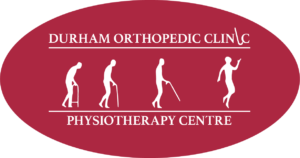Athletes of all levels strive for peak performance, pushing their bodies to the limit to achieve their goals. While training and nutrition are critical components of athletic success, physiotherapy often plays a vital yet sometimes overlooked role in enhancing performance. Physiotherapy can help athletes improve their performance, prevent injuries, and maintain optimal physical health.
Understanding Physiotherapy in Athletics
Physiotherapy, also known as physical therapy, focuses on the treatment and prevention of physical dysfunction, injury, and pain through various techniques and exercises. For athletes, physiotherapy not only aids in recovery from injuries but also helps improve overall physical performance by addressing the body’s specific needs.
Benefits of Physiotherapy for Athletes
- Injury Prevention: One of the primary roles of physiotherapy is to prevent injuries. Physiotherapists conduct comprehensive assessments to identify potential areas of weakness or imbalance that could lead to injury. By addressing these issues early on, athletes can reduce their risk of injury and maintain consistent training.
- Enhanced Flexibility and Mobility: Flexibility and mobility are crucial for optimal performance in any sport. Physiotherapists use stretching techniques, manual therapy, and targeted exercises to improve an athlete’s range of motion, making movements more efficient and reducing the risk of strains and sprains.
- Strength and Conditioning: Physiotherapists design strength and conditioning programs tailored to the specific demands of an athlete’s sport. These programs focus on building strength, power, and endurance, enhancing overall performance and resilience.
- Improved Biomechanics: Proper biomechanics are essential for efficient movement and performance. Physiotherapists analyze an athlete’s movement patterns and provide corrective exercises to improve technique, reduce stress on joints, and enhance performance.
- Faster Recovery: Physiotherapy techniques such as massage, electrotherapy, and cryotherapy can accelerate recovery by reducing inflammation, promoting blood flow, and alleviating muscle soreness. Faster recovery means athletes can return to training and competition more quickly.
- Customized Training Programs: Every athlete is unique, and a one-size-fits-all approach doesn’t work. Physiotherapists create personalized training and rehabilitation programs that address individual strengths, weaknesses, and goals, ensuring optimal performance and injury prevention.
Key Physiotherapy Techniques for Athletic Performance
- Manual Therapy: Techniques such as joint mobilization, manipulation, and soft tissue massage help reduce pain, improve joint function, and enhance muscle flexibility.
- Exercise Prescription: Physiotherapists develop specific exercise programs that include strength training, endurance exercises, and functional movements tailored to the athlete’s sport and position.
- Functional Training: This type of training focuses on exercises that mimic the movements and demands of an athlete’s sport. Functional training improves overall performance and reduces the risk of injury by enhancing the body’s ability to handle the physical stresses of the sport.
- Neuromuscular Re-Education: Techniques that improve coordination, balance, and proprioception (the body’s ability to sense movement and position) are crucial for athletic performance. These exercises help athletes develop better control over their movements.
- Recovery Modalities: Physiotherapists use various recovery techniques, such as cryotherapy (cold therapy), hydrotherapy (water therapy), and compression therapy, to reduce muscle soreness, decrease inflammation, and speed up the recovery process.
Integrating Physiotherapy into Training
For athletes to fully benefit from physiotherapy, it should be integrated into their regular training routine. Here’s how:
- Regular Assessments: Periodic assessments by a physiotherapist can help identify potential issues before they become serious problems.
- Preventive Exercises: Incorporating preventive exercises and stretches into daily workouts can help maintain flexibility, strength, and balance.
- Recovery Sessions: Scheduling regular recovery sessions with a physiotherapist can aid in quicker recovery and better performance.
- Open Communication: Athletes should maintain open communication with their physiotherapists to address any discomfort or issues early on.
Physiotherapy is a powerful tool for athletes seeking to enhance their performance, prevent injuries, and maintain peak physical health. By incorporating physiotherapy into their training regimen, athletes can achieve better results, stay injury-free, and extend their athletic careers. Whether you’re a professional athlete or a weekend warrior, consulting with a skilled physiotherapist can help you reach your full potential and keep you performing at your best.
If you are are looking to see a Physiotherapist or Registered Massage Therapist. Contact the professionals and The Durham Orthopedic & Sports Injury Clinic and start your road to recovery today!

